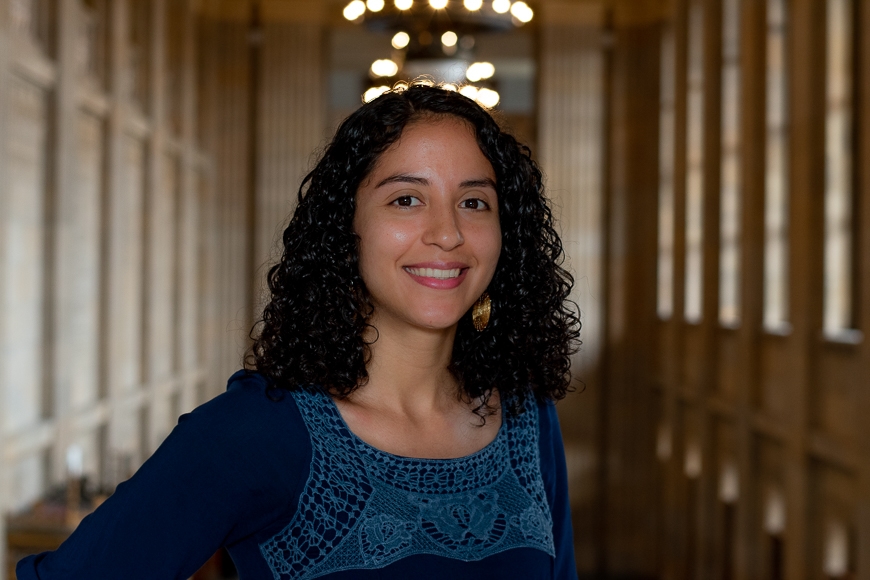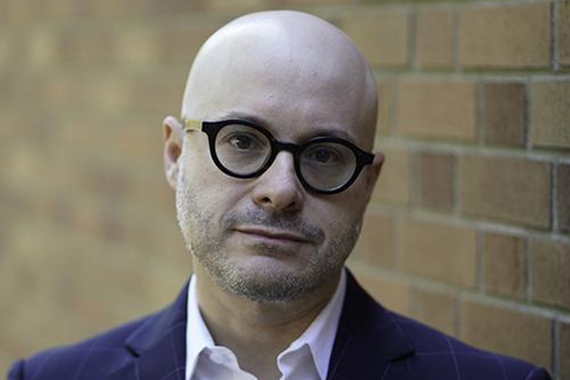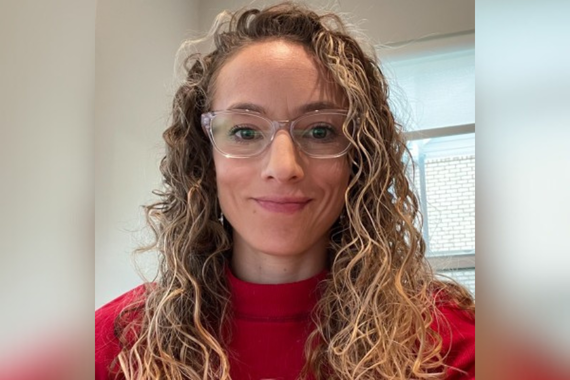Violence Work: Central America's Illicit Economies
María José "Majo" Méndez Gutiérrez, a PhD candidate in the Department of Political Science, wants to know if violence can only be destructive. This is a controversial idea to examine because violence obviously destroys livelihoods, destroys bodies, and can destroy political order. The fieldwork Majo has engaged in from Honduras, to Guatemala, to El Salvador, Mexico, and Los Angeles has shown that violence can also be a source of livelihood, especially for youth in places where there are very few sources of employment and empowerment available. This work is approached not only from a political science or international relations perspective but engages interdisciplinarily with critical gang studies.
Majo explains that she sought to do graduate work at the University of Minnesota because “Minnesota was seen as the cradle of critical international relations. This was a space where I could study international relations in unconventional ways.”
This project, examining how transnational gang violence in Central America produces income and identities for marginalized groups, funded in part by the prestigious Newcombe Doctoral Dissertation Fellowship, is personal to Majo. Growing up in Honduras, “gangs were an ‘other’ that embodied barbarism,” Majo says. “There is a dehumanization of these people, like when government officials call them animals.We miss how gang members are complex human subjects with ethics, that is, with ways of understanding themselves and their actions within specific relationships, when we dehumanize them.”
To collect data for this project, Majo interviewed members of gangs and people who lived in territories controlled by gangs. A big part of this was interviewing women gang members who were in prison or migrants who fled the violence of their country. To get a full picture it was necessary to engage with those who do the work of violence and those who have to suffer the consequences.
Dehumanizing people that engage in “violence work” can have negative policy consequences—which could lead to ineffective solutions to curbing violence. If scholars and policy makers don’t analyze gangs as “socio-cultural forms, groups that have their own rituals, traditions, and visions of the world,” Majo explains, “we may arrive at punitive measures that are not the answer.” Instead, this dissertation project can help convince policymakers that violence work is sometimes one of the few means young people have available to gain a sense of belonging, protection, and welfare in their communities. This leads to the conclusion that the answer to decreasing violence work is to find alternative sources of empowerment, identity, and income for marginalized youth.
A Democratic Way to Learn
Majo taught undergraduates for the first time this summer and brought a unique background and techniques into the classroom. Before coming to the University of Minnesota, Majo spent a year in Brazil learning Portuguese and interning at the center of Theater of the Oppressed. She learned the importance of “demechanizing” the body, which is an “utterly democratic way to learn” that anyone can engage with, not only professional artists.
To help students understand complex concepts and engage in difficult conversations in the course on Democracy and Citizenship, Majo brought them out of the classroom. Students were asked to reflect on the theme raised in Ta-Nehisi Coates’s Between the World and Me that citizenship is visceral and must be understood in how you see and experience the world. Students walked in a circle outside and then discussed what freedoms and limitations they felt.
This exercise led to “productive conversations about racialized and gendered bodies,” according to Majo. Students realized that “women’s bodies at night are not the same as their bodies in other spaces. African American women are expected to yield to others.” Bringing the group outside and creating a space to discuss these topics engaged their senses, which will help the lessons stick longer.
If Majo was able to impart one thing to her students, it was the sentiment CLR James expressed, that “every cook can govern. We can all do this work.”


